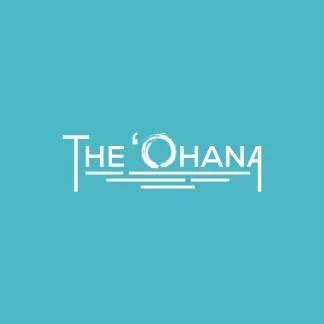ACCESS Capabilities
ACCESS Capabilities provides quality and affordable services for individuals and...
The Ohana Addiction Treatment Center is a world-class alcohol and drug abuse treatment facility on the Big Island of Hawaii. Our single Intensive Outpatient Treatment program is integrated within a sober living environment. After successfully detoxing, Clients join our integrated IOP/SLE program for 30-120 days on their path to recovery in Hawaii.
The Ohana is the only world-class intensive outpatient center and integrated sober living facility for the treatment of substance abuse on the Island of Hawaii. We are a therapeutic, trauma informed haven that is centered in spirituality— acclaimed by patients, physicians, carriers, and employees who seek long-term results for their patients. Our vision is achieved through our commitment to: Excellence in service, trauma informed care, employee development, ethical and fair treatment of all, tools for maintaining long-term sobriety, compassion, and innovative therapeutic techniques.
Our outpatient day program has the highest level of care and structure provided within a sober living facility. In a day program, clients commit to meeting 5 days per week for multiple hours each day. During this time, patients will participate in ongoing therapy, group counseling, biofeedback, and other adjunct therapies, such as art or music therapy as well as group adventures around the island. Patients remain in our sober living facility after each session. Our day program requires a time commitment however, patients have the availability to work or go to school part-time after therapy each day and on weekends.
Set amidst the peaceful Hawaiian landscape, patients explore attachment traumas, find long-term recovery, explore spirituality, and participate in adventures across the island in a safe and therapeutic environment that prevents chronic relapse.
Contact us for more information: (877) 664-2622

Connect with The Ohana Addiction Treatment Center by calling their admissions team directly.
(877) 664-2622 Website Get DirectionsCognitive Behavioral Therapy (CBT) is a therapy modality that focuses on the relationship between one's thoughts, feelings, and behaviors. It is used to establish and allow for healthy responses to thoughts and feelings (instead of unhealthy responses, like using drugs or alcohol). CBT has been proven effective for recovering addicts of all kinds, and is used to strengthen a patient's own self-awareness and ability to self-regulate. CBT allows individuals to monitor their own emotional state, become more adept at communicating with others, and manage stress without needing to engage in substance abuse.
Dialectical Behavior Therapy (DBT) is a modified form of Cognitive Behavioral Therapy (CBT), a treatment designed to help people understand and ultimately affect the relationship between their thoughts, feelings, and behaviors. DBT is often used for individuals who struggle with self-harm behaviors, such as self-mutilation (cutting) and suicidal thoughts, urges, or attempts. It has been proven clinically effective for those who struggle with out-of-control emotions and mental health illnesses like Borderline Personality Disorder.
Recreational therapy (aka therapeutic recreation) uses creative and fun activities to help with addiction recovery. Recreational therapists lead patients in entertaining and engaging activities like sports or games; art (drawing, painting, sculpture); drama, music, and dance; and/or community outings (field trips) to improve patients' physical, social, and emotional well-being.
Dialectical Behavior Therapy (DBT) is a modified form of Cognitive Behavioral Therapy (CBT), a treatment designed to help people understand and ultimately affect the relationship between their thoughts, feelings, and behaviors. DBT is often used for individuals who struggle with self-harm behaviors, such as self-mutilation (cutting) and suicidal thoughts, urges, or attempts. It has been proven clinically effective for those who struggle with out-of-control emotions and mental health illnesses like Borderline Personality Disorder.
Recreational therapy (aka therapeutic recreation) uses creative and fun activities to help with addiction recovery. Recreational therapists lead patients in entertaining and engaging activities like sports or games; art (drawing, painting, sculpture); drama, music, and dance; and/or community outings (field trips) to improve patients' physical, social, and emotional well-being.
Recreational therapy (aka therapeutic recreation) uses creative and fun activities to help with addiction recovery. Recreational therapists lead patients in entertaining and engaging activities like sports or games; art (drawing, painting, sculpture); drama, music, and dance; and/or community outings (field trips) to improve patients' physical, social, and emotional well-being.
ACCESS Capabilities provides quality and affordable services for individuals and...
Big Island Substance Abuse Council (BISAC) is a CARF-accredited dual-diagnosis s...
AA – Alcoholics Anonymous – Intergroup is a non-profit rehab located in Kailua K...
Kailua Kona CBOC, part of VA Pacific Islands Health Care System, provides primar...